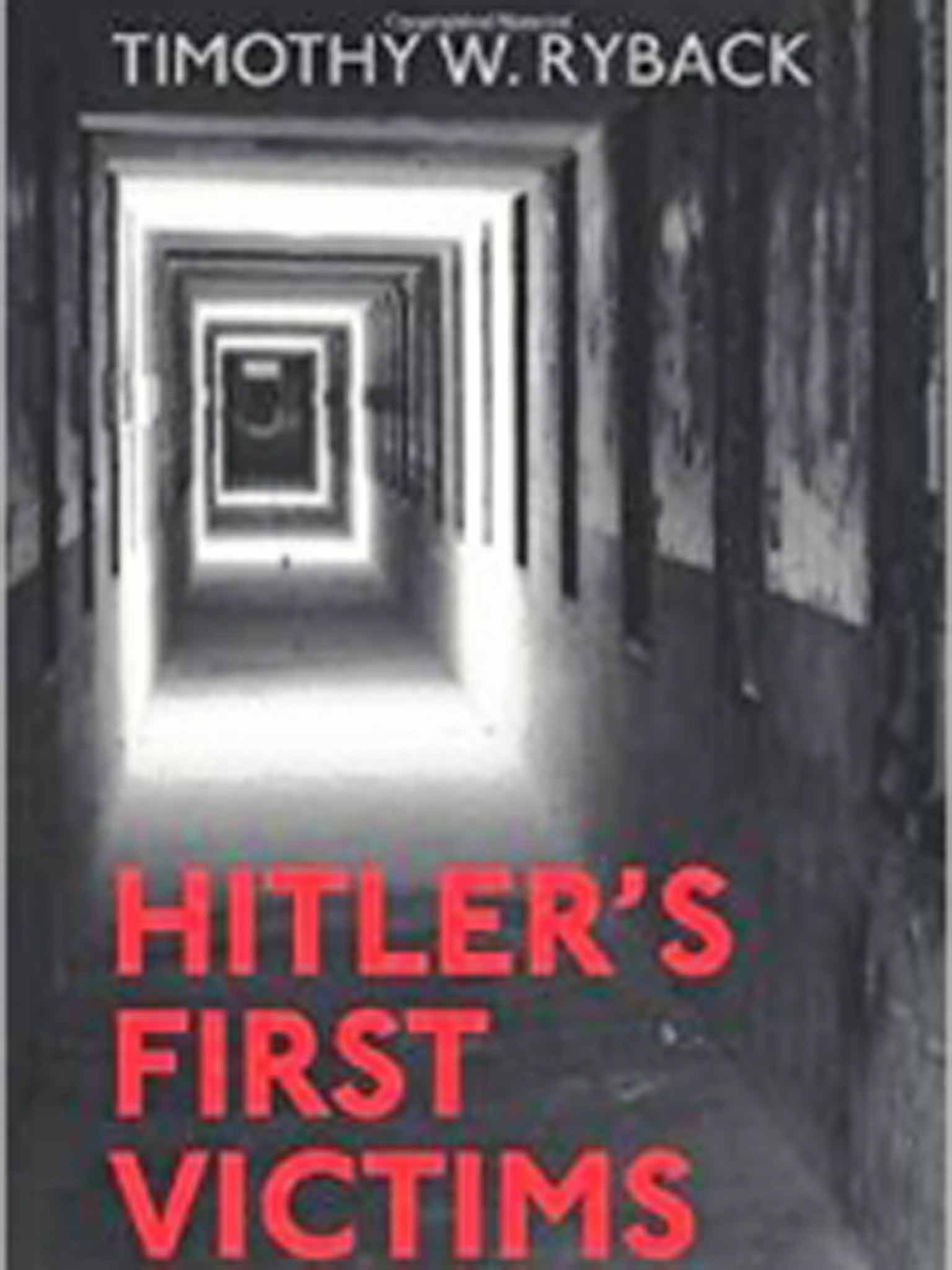Hitler's First Victims and One Man's Race for Justice by Timothy W Ryback - book review: Tremendous tale of unsung hero amid the horrors of Hitler
Ryback’s tenacity as forensic researcher and huge storytelling flair make this a compelling page-turner

Your support helps us to tell the story
From reproductive rights to climate change to Big Tech, The Independent is on the ground when the story is developing. Whether it's investigating the financials of Elon Musk's pro-Trump PAC or producing our latest documentary, 'The A Word', which shines a light on the American women fighting for reproductive rights, we know how important it is to parse out the facts from the messaging.
At such a critical moment in US history, we need reporters on the ground. Your donation allows us to keep sending journalists to speak to both sides of the story.
The Independent is trusted by Americans across the entire political spectrum. And unlike many other quality news outlets, we choose not to lock Americans out of our reporting and analysis with paywalls. We believe quality journalism should be available to everyone, paid for by those who can afford it.
Your support makes all the difference.Another book about Hitler and his regime? Another book detailing the appalling, sickening treatment of human beings by other human beings? Is there ever a time to say “enough”, to the detailed picking over of that genocide? If so, that time is not here yet. This new contribution to the canon of Second World War and Holocaust literature deserves to be read with care, ideally also by those in positions of influence as regards the wars and barbaric incidents of our own time.
Ryback’s tenacity as forensic researcher and huge storytelling flair make this a compelling page-turner. He introduces us to an unsung hero from the early years of Hitler’s chancellorship, when the state still held some sway against the total dictatorship to come, when the legal system could still, just, function, when the state police were separate from Himmler’s stormtroopers, and remnants of the foreign office not entirely chained to National Socialist propaganda. In Bavaria, always a proud, Catholic, separate-feeling state, some older, respected figures of local pre-Hitler government refused to be seduced by the lies of the Führer.
As the window to alter the course of the horror gathering pace was growing smaller, Josef Hartinger, a state prosecutor in Munich, displayed an absolute “belief in the transcendent power of justice”, doggedly pursuing the truth about deaths at the newly opened Dachau detention camp. Together with the equally incorruptible forensic doctor Moritz Flamm, he showed immense courage in refusing to be cowed by the apparatus of those experimental days of the “protective custody” of Jewish people. Days which, Ryback argues, held clear indicators of the regime’s capabilities and direction.
The book is dedicated to the memory of four young men, the first murder victims in the camp of Dachau, a small town of cobbled streets once favoured by artists from Max Liebermann to Lovis Corinth, famous, too, during the First World War for its munitions factory, whose ruins housed the makeshift detention centre. Hartinger was determined that the truth of these, and successive murders, be revealed at home and abroad. At the 1945 Nuremberg Trials headway was made, and, now, over 70 years later, this book tells the story as fully as possible.
Hartinger may have had neither “the aristocratic bearing of Raoul Wallenberg” nor “the charms” of Oskar Schindler but he “demonstrated the potential of personal courage and determination in a time of collective human failure.”
Active resistance has many guises: a tremendous, tough, important read.
Join our commenting forum
Join thought-provoking conversations, follow other Independent readers and see their replies
Comments